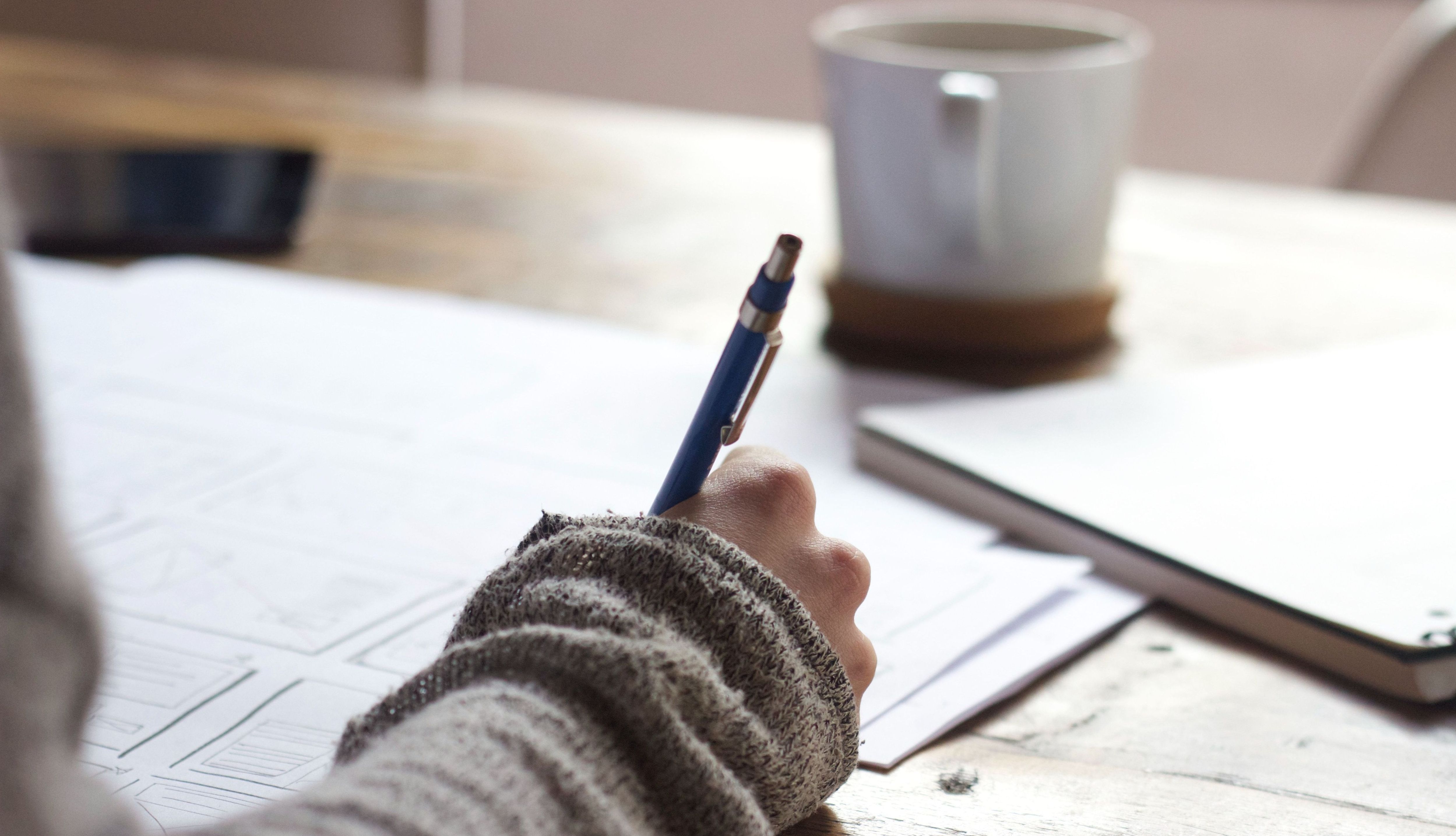4 Ways to get ready for homebuying
Trying to buy a home can be a stressful and confusing time. Where do you start?
It can be a stressful and confusing time for anyone looking to buy a home. Where do you start, what’s important, what have I inevitably forgotten about? Here at Keyzy we are obsessed with helping people onto the property ladder. So, we’ve written this guide to some important steps to think about in the build-up to your homebuying journey. As always make sure you do your research and know where you stand before making what can be one of the most important decisions of your lifetime.
You can also check out the first part of this series where we talk about the of why it’s so hard to buy a home in the UK.
1. Find out your budget and what you could afford
The best place to start is making sure you understand what your budget looks like and assessing your full financial position. Create a budget that takes into account your income and full expenditure. Reviewing your bank statements over the last couple of months can help here. You can see what your bills and expenditure are, what you wish to keep and any adjustments in your spending you’re happy to make. This will help you determine how much you can afford on a mortgage each month but also what savings you can make prior to this to build a deposit. Be mindful that your bills may change in a new home and take these into account as you will be responsible not only for any potential mortgage but other expenses like energy, water, insurance, and council bills.
Typically, lenders could approve up to 4.5 times your household income in a mortgage. Pair this with your deposit (minus moving, legal and duty costs) and you have your house hunting budget! For example, let’s say you and your partner earn £40,000 between you. This is a maximum mortgage of £180,000, and if you add a deposit of £20,000 (10% of the total value) you can buy a home worth up to £200,000. But as we’ve said before, depending on the price of your mortgage the monthly payments need to be considered before agreeing to the terms.
Remember, it’s not just the deposit and mortgage you will have to pay for during the homebuying process, there is also stamp duty, surveys, removals/movers, solicitors, and perhaps new furniture. You might also want to set aside some money for decorating or other work you’d like to do to your new home. We recommend that prospective homebuyers understand their budget using tools like Klink, a financial wellness app.

2. Understanding your buying options
If you’re looking to purchase a property with a mortgage, keep in mind that you will likely require a deposit. Most lenders expect a deposit of at least 5-10% however the mortgage may be more expensive than if you had a larger deposit as the average first-time buyer amount is 20%. In fact, the terms of your mortgage are more favourable if you have a larger deposit, with the best terms normally being at a deposit amount of 40% of the home’s value, hence a 20% deposit is much better than the minimum. In other words, the smaller the loan is in proportion to the value of the home, the lower the interest rate you will be offered, and the smaller the monthly payments will be. Easier said than done during the cost of living crisis we know. But finding a way to save as much as you can now is one of the most important things you can do for your home ownership dream.
You can also talk to a mortgage lender or mortgage broker who can help guide you on how much you can afford based on your income, keep in mind the budget you set at the start of the exercise and be comfortable that you can afford the potential monthly payments. You may also want to decide if you want to us a broker who charges a fee or just get’s paid by the lender which will be cheaper for you.
Have a look at the different schemes available to you. There are several government schemes, shared ownership options and rent to buy options out there, all designed to help people who may struggle to get a traditional mortgage deal. Explore them all to determine what you have access to and what makes sense for you.
3. What kind of property do you want within your budget?
Make sure from the outset that you know the style and type of property you’re looking for, as well as the desired location. Decide what is most important to you, what is non-negotiable and where you can be flexible. For example, is it close to a reputable school, excellent transport links or do you need a larger home with more bedrooms?
Take a look at what is currently out there in the marketplace using websites like Rightmove and Zoopla, this will help you decide what value of property you desire. If you look at enough listings you get to form a picture of the types of homes you can get for your budget and what parts of your desired home you might need to compromise on. You may find that you’re faced with a trade-off in your area such as a 2 bed with a large garden or a 3 bed with a small courtyard.
Other considerations could be about the property’s EPC (how energy efficient it is) and if you think there would be any trouble selling it again the future if you need to.
4. Getting ready to apply to buy a home
If you’re looking to buy a property with a mortgage, remember that lenders have certain criteria with regards to your income and financial conduct. Make sure that you pay all bills on time and if you can avoid it, don’t apply for any new loans before applying for a mortgage. Anything from a credit card to ‘buy now pay later’ schemes can hurt your chances.
Talking to a mortgage broker early on can help you understand your buying power and any issues you may have. You can also apply directly to some of the high street lenders, but make sure you do your research in advance. A broker or lender can also get you a ‘mortgage in principle’ which you may need whilst making an offer on a property. This is just a document that says a lender has looked at your basic information, run a basic credit check and approved your mortgage budget based on your income. It’s not a guarantee they will accept your full application.
You will also need to make a decision about the type of mortgage you want. For example, a fixed rate (the monthly payment stays the same) or a variable/tracker (the price can change over time). How long you want the initial term to be (2-10 years) and the full term (normally around 30 years for someone in their 30s). We won’t go into lots of detail here but an important thing to research and ask for advice on.
When completing a full application, lenders will review your past credit (borrowing) activity to get an idea of how you manage your finances, if you’ve had any missed payments, have defaulted, are taking out too much credit, or have had county court judgements (CCJs). Any form of insolvency will normally hinder your chances.
You can get free credit reports to see your records and what the mortgage provider will see. There are a number of credit reference agencies out there and all have to provide this information for free. Speaking to a broker may help you determine your options if there are some problems with your report.
Lenders may also review your current income and expenditure from your bank statements, again making sure you pay all your bills with no returned or bounced payments. Heavy use of an overdraft could also negatively impact you.
If you’re self-employed make sure all your required documentation is up-to-date and accurate such as completing tax returns and accounts. If you have an accountant, they can assist you in making sure all your paperwork is up-to-date and accurately shows your level of earnings.
A mortgage lender may also query transactions they can’t understand; this could be large transactions with third parties or family that can’t be easily explained or verified, or maybe large amounts of cash transactions that are inconsistent with your spending behaviour. So, review your statements and make sure that any larger transactions can be easily verified.
They will also likely review the source of your deposit to make sure it is genuine. If the deposit can be seen saved regularly over a period of time, they’re more likely to be happy with it than large amounts of cash entered over a short period.
Finally, being on the electoral register as it further verifies where you live for the lender. They will be able to view dates that you first registered at an address and when you moved. Residential stability is important to many lenders given the amount of money they are handing you to buy a home.
Ready, set…go
Once you feel like you are ready with all the items mentioned above it’s time to get started searching for properties. Check in to this blog again soon for our next part in the series on how to get through the buying process.
At Keyzy, we are dedicated to helping people onto the property ladder, especially when they aren’t quite mortgage ready. We don’t require a deposit, and we don’t lend any money. Keyzy buys the home for you, we lock-in your future buy-back price and work with you to make sure you can buy back from us when ready. Please get in touch to discuss your options.
One of the best free apps out there that helps future home buyers to get ready is Klink. Try it out today!
Disclaimer: The information provided in this blog is for informational and educational purposes only and should not be considered as financial advice. The content presented here is not a substitute for professional financial advice tailored to your specific circumstances. We recommend consulting with a qualified financial advisor or seeking guidance from relevant authorities for any financial decisions you may be considering. The author and publisher of this blog are not responsible for any actions taken as a result of reading this content.
There's no ifs or buts about it. Buying a home in the UK is really hard to do for many reasons.
